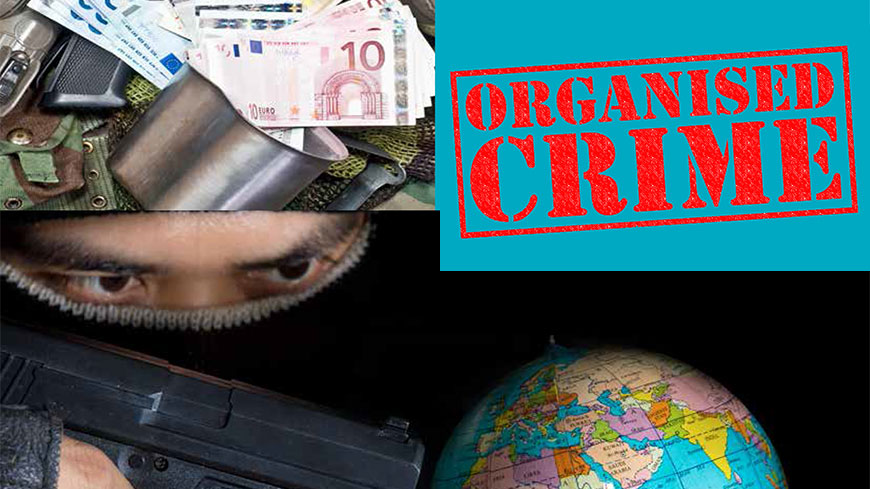Free Courses Sale ends Soon, Get It Now


Free Courses Sale ends Soon, Get It Now



Copyright infringement not intended
Picture Courtesy: www.coe.int
Context: The Union Minister of State for Home Affairs participated in the two-day UN Convention against Transnational Organized Crime Ministerial Conference in Palermo, Italy, on September 28-29.
Key Highlights of the Minister's Speech
United Nations Convention against Transnational Organized Crime (UNTOC)
About
|
Key Features of the United Nations Convention against Transnational Organized Crime (UNTOC) |
|
|
Comprehensive Scope |
●The UNTOC is a global treaty that addresses a wide range of transnational organized crimes, including but not limited to drug trafficking, human trafficking, migrant smuggling, money laundering, cybercrime, environmental crime, arms trafficking, and terrorism. ●It recognizes the evolving nature of organized crime and provides a framework for dealing with various forms of criminal activities. |
|
Definition of Organized Criminal Group |
●The treaty defines an organized criminal group as a structured group consisting of three or more persons that exist for a period of time and act together with the aim of committing one or more serious crimes. ●Organized crimes are typically conducted to obtain financial or other material benefits, and a serious crime is defined as an offence punishable by imprisonment for at least four years. This definition helps in identifying and targeting criminal organizations effectively. |
|
International Cooperation |
●UNTOC promotes international cooperation among its parties. It establishes a framework for mutual legal assistance in the prevention, investigation, prosecution, and extradition of offenders involved in transnational organized crime. This cooperation is crucial to combating criminal networks that operate across borders. |
|
National Measures |
●Parties to the treaty are required to adopt effective measures at the national level to combat transnational organized crime. These measures may include criminalizing participation in organized criminal groups, implementing anti-money laundering laws, protecting witnesses and victims, enhancing the capacities of law enforcement and judicial authorities, and promoting public awareness and education about these crimes. |
|
Protocols |
●UNTOC is supplemented by three additional Protocols that specifically target various forms of transnational organized crime: ○Trafficking in Persons Protocol: Aims to prevent, suppress, and punish trafficking in persons, especially women and children. It focuses on protecting and assisting the victims of human trafficking while prosecuting the traffickers. ○Smuggling of Migrants Protocol: Aims to prevent and combat the smuggling of migrants and protect their rights during the process. ○Firearms Protocol: Aims to prevent and control the illicit manufacturing and trafficking of firearms, their parts, components, and ammunition. It enhances cooperation among the parties to curb the illegal trade in firearms. |
Significance of UNTOC
|
Organized Crime ●Organised crime is a complex and multifaceted phenomenon that poses a serious threat to the security, stability and prosperity of societies around the world. ○The activities include drug trafficking, human trafficking, money laundering, cybercrime, environmental crime, arms trafficking, piracy, counterfeiting and terrorism. ●It undermines the rule of law, erodes public trust in institutions, fuels conflict and violence, hampers economic development and violates human rights. ●Organised crime groups operate across national borders, exploiting legal loopholes, corrupting officials and using violence and intimidation to achieve their illicit goals. ●Combating organised crime requires a comprehensive and coordinated response from the international community, involving law enforcement, judicial cooperation, intelligence sharing, preventive measures, asset recovery and victim protection. |
Steps taken by India to implement the provisions of the UNTOC at the national level
Enacting Relevant Laws
Specialized Agencies
Regional and Bilateral Cooperation
Conclusion
|
PRACTICE QUESTION Q. What is the significance of the United Nations Convention against Transnational Organized Crime (UNTOC) in addressing the global threat of organized crime, and how does it promote international cooperation among its parties? |
© 2024 iasgyan. All right reserved